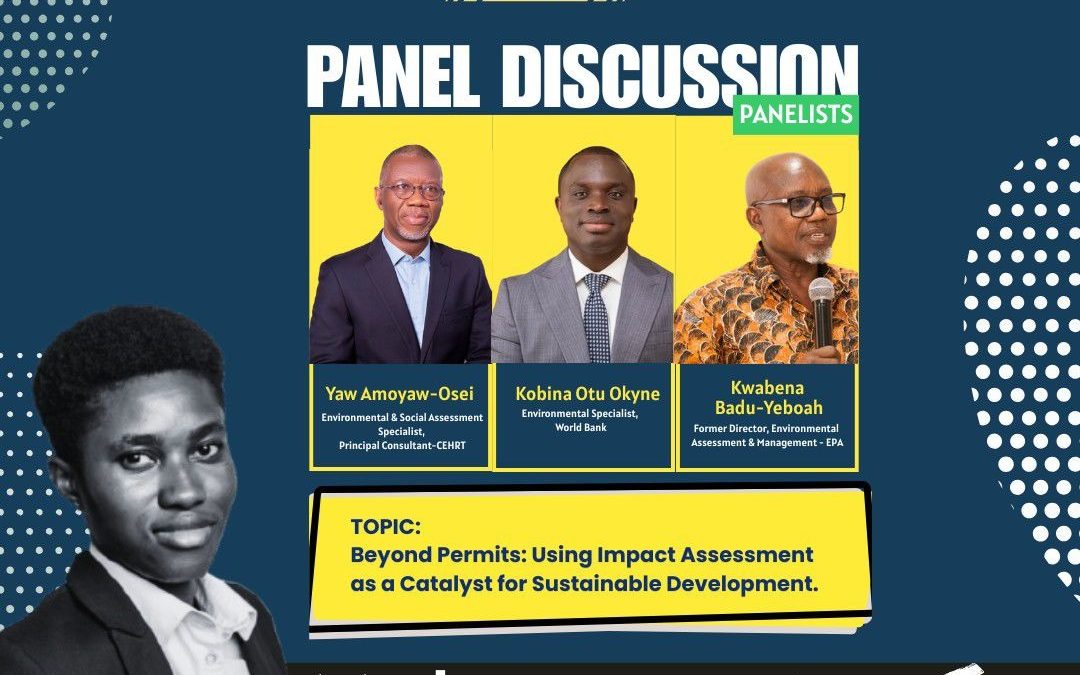On July 30, 2025, The CEHRT Perspective webinar, titled “Beyond Permits: Using Impact Assessment as a Catalyst for Sustainable Development,” brought together experts and stakeholders from regulatory institutions, development partners, and consulting firms to explore how Impact Assessment (IA) can be repositioned as a strategic tool for long-term, inclusive development.
The webinar featured a rich and engaging panel discussion with contributions from Mr. Kwabena Badu-Yeboah (former Director of Environmental Assessment and Management, Environmental Protection Agency), Mr. Kobina Otu Okyne (Environmental Specialist, World Bank), and Mr. Yaw Amoyaw-Osei (Environmental and Social Assessment Specialist, CEHRT). The session was expertly moderated by Miss Ewurama Kakraba-Ampeh, who guided the conversation to highlight the gap between the intended purpose of Impact Assessment and how it is currently applied, particularly within the Ghanaian and wider African context.
Panellists emphasized that while IA is often treated as a procedural requirement for permitting, its true value lies in guiding project design, informing decision-making, and ensuring sustainability is embedded from the earliest stages. Drawing on their diverse experiences, the speakers shared lessons from successful assessments and identified key areas for improvement, including stronger institutional capacity, better integration of community voices, and a shift from compliance-driven assessments to outcome-oriented ones.
The event also provided space for reflections from the audience, highlighting a shared desire for more transparent, participatory, and technically sound IA processes that contribute meaningfully to national and local development goals.
Key Takeaways:
• Impact Assessment should not be limited to regulatory approval but used as a decision support tool throughout the project lifecycle.
• Institutional alignment, capacity building, and clear coordination mechanisms are essential for improving IA quality and implementation.
• Real-world examples show that well-conducted assessments can prevent harm, add long-term value, and enhance stakeholder trust.
• Stakeholder engagement must be integrated early and meaningfully to ensure inclusive outcomes.
• The role of development partners and consultants is critical in promoting standards, building systems, and facilitating learning.
The webinar concluded with a call to reposition IA as a developmental instrument, not just a legal obligation.


